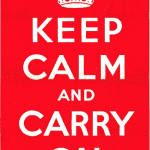 Technology allows me to travel with hundreds of books downloaded on my mobile. There are hours of entertainment, movies and games. This is good news. Information and conversation on social media available through an Internet connection means I never lack a dialog partner.
Technology allows me to travel with hundreds of books downloaded on my mobile. There are hours of entertainment, movies and games. This is good news. Information and conversation on social media available through an Internet connection means I never lack a dialog partner.
Inside of Christian education, however, this newfound power can distract us from the enduring nature of true education. Just as one never would totally replace the live music concert with recordings, so nobody should record a dialogue, show it to online students, and then claim a dialectic discussion has occurred!
A. Live or Recorded/Preserved Performance
We must make a distinction between the experience that is live and one that is recorded. A book is an ancient means of recording information and read well can provoke many types of emotional experiences. This experience can be shared by discussion with others, but (generally) is an isolated experience.
Early in the history of ideas, the majority of arts and education had to be experienced live. All music was a live event for most of recorded history. New technology increased the amount of recorded music heard until now, for almost all our students, the recorded is overwhelmingly dominant form. The technology generally has moved toward isolating the participant. The packed motion picture screening gives way to the student watching a film on the phone with headphones.
I am not arguing this is “evil” or suggesting a moral panic! Instead, the Christian educator must recall that the liturgy cannot be placed online. A man cannot see the True Light on a livestream from the Cathedral, just an image of the images. Now imagine a child of this generation in Church. He has little experience with live hearing and seeing. He is used to being able to pause or rewind what he is seeing.
The Church cannot change: we are ensouled bodies and both must come to the altar.
The Christian educator also must face the challenge of mentoring. As machines take over more service jobs, my students do not gain interpersonal skills by visits to the store. Often they prefer machines to conversation with clerks. After all, for the first time in human history, most of their interpersonal interactions my be “preserved” and not “live.”
A mobile call is a series of preserved messages rapidly passed between the people on the call. We forget we are hearing a simulated voice, because the simulation is so fast. This is obvious in the case of a text as the text need not be read at the moment received. I have seen rows of students sit and text other students in the same room rather than speak.
For the first time in human history, our students have less practice in live communication, education, and art than with preserved forms. As a result, they will find education difficult.
What is to be done?
We are thankful for preserved music, the ability to capture a talk or some act of beauty and be able to enjoy it differently. A movie takes this ability and in a theater joins that preserved beauty with the shared enjoyment of the audience. This is not, therefore, the worst of times!
To make it the best of times, we must encourage our students to gain a skill that past generations gained naturally: endurance and understanding in live performance. This is the skill in listening to a lecture without distraction and with comprehension. This is the skill that allows a person to attend a live concert and appreciate the difference between that and the recording.
“Why would I go to this college performance of As You Like It?” a student once asked me, “when I can see it done better on YouTube?”
The difference, the sense of a community coming together, seeing friends give present life to the words, is important, but must be experienced more than described. Gaining the skill to flourish during a live performance takes time and multiple experiences.
We spend hours every week asking students to listen and discuss in our community. After two years or so, we see students begin to enjoy the experience, not merely endure. In the same way, schools and colleges must provide numerous chances to see art being made, to listen, and learn together. These not be elaborate. At our school, one of our best programs is “Music at Noon” where students gather to perform and listen to music made by their fellows. Some of this music they compose themselves and this is important as well. In class, they will get feedback on their compositions and so improve, but at “Music at Noon” they gain the pleasure that comes when friends enjoy what they have made.
Being both a good audience and a creator requires living performance, since the very act of creating is done in time. We do not create in the past, but now. This creation might take a long period of time and so the endurance we learn in the classroom is practice for the filmmaker, the game producer, and all artists. Meanwhile, those of us who mostly are given the gift of being “the audience” need to mature in our tastes to enjoy the deeper happiness available in artists and thinkers like Arvo Parte.
B. Amusing Ourself to Boredom
The other difficulty I have seen in students is how easily they become bored even at events designed to capture their attention by professional entertainers. The ability to “multi-task” means that they often have more than one entertainment playing at once. Whatever the merits of this ability, surely it prevents a training in the intense focus a more difficult work of art, music, or teaching requires.
I can watch a YouTube video while also watching a football game, but I cannot give a serous musical composition its due while watching a cat video on YouTube. I am deprived of higher pleasures. This is important to convey to students as the work of learning to focus and enjoy more difficult art is initially less enjoyable than immediately turning to other stimulation the moment attention wanders.
When I speak to college students, often they will disagree with the morals of an Orthodox Christian. I have yet to find anyone who wishes to be bored or to cultivate boredom. Perhaps, however, we should distinguish between two kinds of boredom: the light discomfort or distraction of not immediately enjoying a thing, the absence of pleasure, and the heavy discomfort that comes when a man or woman experiences a positive tedium that is difficult to escape. The student who says “I am bored” is (most often) merely not-entertained. The bored grownup, like some Oscar Wilde characters or members of Bertie Wooster’s Drones Club, is unable to get out of the sense of meaninglessness. This is often the result of amusing himself to tedium.
There is a reason the wealthy used to warn against too many amusements for youngsters. My grandparents never became wealthy, but technology brought them endless amusements at the turn of a radio dial, then a television dial, and finally a press on the iPad. They were not warned, none of us were warned, what the ability to entertain ourselves ever more easily, everywhere, might do. We all have become wealthier than a Gilded Age robber baron in terms of our entertainment options without the training in restraint, the classical virtue of moderation, that class was taught.
The media fast has become for our students (and for us) as important as any other kind of fasting. We restrain ourselves and help them step back from all amusements for a long period of time. Lent, the Apostles Fast, and Advent are all good times for this discipline. We also encourage the purchase of a “dumb” phone with no access to the Internet or amusements. I use one myself when I wish to focus on a task without being distracted.
Finally, we must encourage parents not to fill every moment with “good” activities. Growing up, I was blessed with parents who sent me off to amuse myself and the blessing of long summer days with “nothing to do” or Saturdays that were mine after chores were a privilege. I would begin with light boredom until I learned to create games and play in the undirected ways that stimulate creativity.
It was easier for them to keep me from easy entertainment: no television and I was not allowed a portable radio as a child. It is harder now. If a parent does not provide the many other entertainment choices now available, then a student’s friends can do so.
The good news is that dialogue, the best way to educate, with a child or student will help them form better entertainment choices for themselves. Easy entertainment is too ubiquitous for a mere ban to work, so we must from earliest days help students gain the discipline to turn from entertainments to creation.











